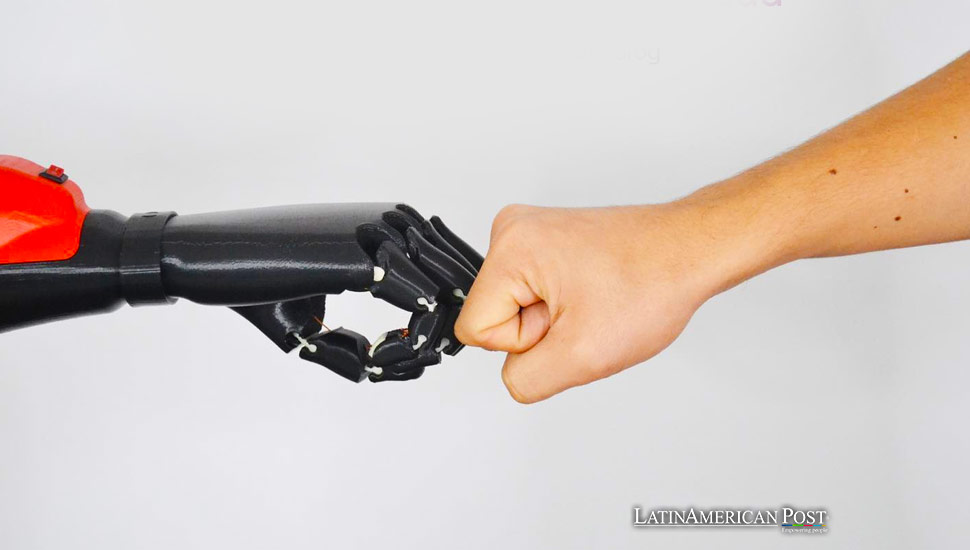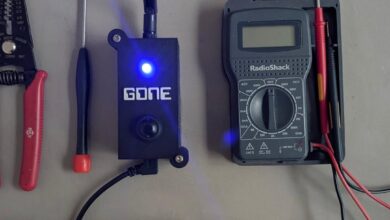Peruvian Startup Pixed Revolutionizes Prosthetic Technology

In a groundbreaking move showcasing Peru’s innovation, engineer Ricardo Rodríguez founded Pixed Corp, introducing the world’s first bionic prosthesis with elbow articulation to empower individuals with disabilities.
A remarkable narrative of innovation and compassion unfolds in the heart of Peru, a country rich with history and burgeoning with technological advancements. Ricardo Rodríguez, a Peruvian engineer driven by personal experiences with disability within his own family, has established Pixed Corp. This startup is not just a company; it’s a beacon of hope for many, having developed the world’s first bionic prosthesis with elbow articulation.
The genesis of Pixed Corp stems from Rodríguez’s deep-seated desire to address the gaps in assistive technology he witnessed firsthand. Growing up, he saw his uncle struggle with inadequate solutions provided by the state—a plastic chair mounted on bicycle wheels as a makeshift wheelchair. This early exposure to the challenges faced by people with disabilities in Peru left a lasting impact, propelling him toward a career dedicated to creating viable solutions.
Statistical Background and Company Foundation
Peru, like many developing countries, grapples with significant challenges related to disability. Approximately 5.2% of the population lives with some form of disability, with over 210,000 individuals facing mobility challenges or limb impairments. Founded on December 15, 2015, Pixed Corp emerged as a research and technology development firm committed to transcending traditional boundaries in prosthetic development.
Pixed’s approach to innovation is deeply collaborative. Working closely with the Peruvian Association of Hand and Microsurgery, the company ensures that each prosthesis is technologically advanced and medically sound. Rodríguez’s team specializes in a range of prosthetics from partial to complete upper arm devices, incorporating cutting-edge 3D printing technology and sensor integration that allows for pre-recorded command execution and adaptive learning based on the user’s movements.
User-Centric Design and Affordability
A core tenet of Pixed’s philosophy is its user-centric design methodology. This approach ensures that the prostheses are functional and cater to the evolving needs and preferences of the users. Additionally, the design allows for component replacement instead of complete device replacement, making these prosthetics more affordable and adaptable.
Pixed’s pioneering work received global recognition when it launched the first bionic prosthesis for forearm amputations in 2020. Following user feedback, the company developed a full-arm version, which debuted in 2021. This innovation was recognized by the global community E-Nable and supported by the Royal Academy of Engineering in the UK, underscoring its groundbreaking nature.
Expanding Reach and Future Aspirations
Today, Pixed is a symbol of Peruvian innovation and a testament to the potential for technology to transform lives. With over 130 prostheses delivered worldwide, Rodríguez’s vision extends beyond national borders, aiming to reduce manufacturing times and expand throughout Latin America. Countries like Chile, Mexico, Brazil, and Bolivia have shown keen interest in the startup’s offerings.
Also read: Peru Allocates $9.7 Million to Boost Cultural Industries
As Pixed Corp continues to innovate and expand, it carries forward not just the legacy of a visionary engineer but also the aspirations of countless individuals across the globe. This story is not just about technological achievement; it’s about harnessing Peruvian ingenuity to create meaningful change in disability and mobility. It is a narrative that captures the spirit of a nation rapidly positioning itself as a hub for medical technology and innovation in Latin America.





